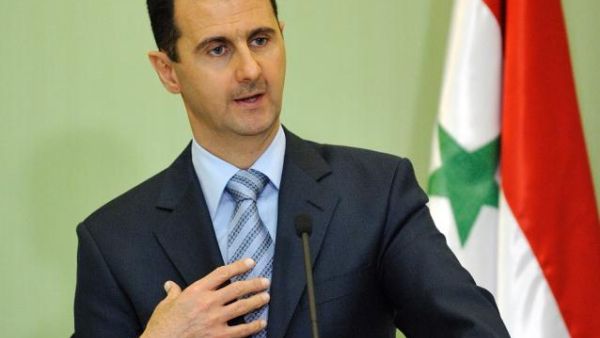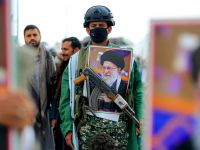In the midst of war, it’s difficult to be neutral. Charities, conferences, publications – all can conceal an implicit bias that could jeopardise journalistic integrity or worse.
Reporter Rania Khalek found this out the hard way yesterday. After many weeks of controversy over accusations of support for the Assad regime, she left her job as an editor of The Electronic Intifada in the midst of scandal surrounding her scheduled appearance at a conference sympathetic to the Syrian regime.
The outrageous attacks against me have expanded to @intifada. So I'm stepping down as an editor. The professional smear artists won.
— Rania Khalek (@RaniaKhalek) 30 October 2016
Khalek was due to speak at a two-day workshop, which started yesterday, on the “ramifications of the war in Syria”, and was listed on the programme as discussing the consequences of western sanctions. In a statement published yesterday, she announced that she had dropped out of the conference.
— Rania Khalek (@RaniaKhalek) 30 October 2016
The event is run by the British Syrian Society, a London based NGO founded by the father-in-law of Bashar al Assad. Previously involved in organising meetings between British and Syrian politicians, this is the its first major initiative since the beginning of the war. Chris Doyle, from the Council for British-Arab understanding, told the Guardian that the Damascus based conference was a PR exercise for the Syrian regime.
“It's wrong to take part. If you are involved in track two diplomacy, fine. If you are going on some sort of propaganda conference, no way,” Doyle said. Khalek’s colleagues at Electronic Intifada agreed, with Charlotte Silver writing on Twitter that participation demonstrated an error of judgement.
If a journalist can't figure out the nature of a conference she's speaking at, she's been discredited as a reliable judge of info + sources.
— Charlotte Silver (@CharESilver) 30 October 2016
Several other high-profile figures raised eyebrows over their attendance, including Lord Asquith, a British politician, who was also listed as a speaker at the event. When initially faced with criticism over her attendance at the conference, Khalek invoked that company in a statement.
Statement on my visit to Syria with other international journalists pic.twitter.com/zf5tZLtaR7
— Rania Khalek (@RaniaKhalek) 29 October 2016
Here is the programm of BSS conference in #Damascus pic.twitter.com/o8M8pWDM4V
— Ibrahim Hamidi (@ibrahimhamidi) 29 October 2016
The incident followed weeks of scandal surrounding employees of The Electronic Intifada, a popular pro-Palestine website, and accusations of support for the Assad regime. Max Blumenthal, a pro-Palestine activist and journalist, had previously come under fire for accusing Syrian organisations like the White Helmets of running “shady” pro-American campaigns for intervention.
On Twitter, commentators responded with both criticism and support for Khalek.
I feel angry and depressed that Rania Khalek can strut like a peacock in Damascus, my home city, while I haven't seen it in five years.
— Maysaloon (@Maysaloon) 29 October 2016
Cofounder of @Intifada Laurie King says @RaniaKhalek's Syria trip "disgusts" her in Facebook post, slams EI as "pro-Assad". pic.twitter.com/Y8UYUADmxn
— Oz Katerji (@OzKaterji) 30 October 2016
So all these western "journalists" and "analysts" can attend the Damascus conference but @RaniaKhalek can't? Idiocy. https://t.co/8e19Gql9JB
— Haidar Sumeri (@IraqiSecurity) 30 October 2016
Khaled has said she will continue her travel in Syria, for reporting purposes.
BS







